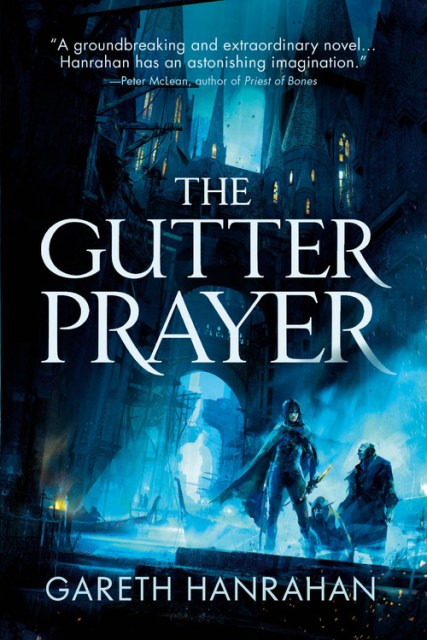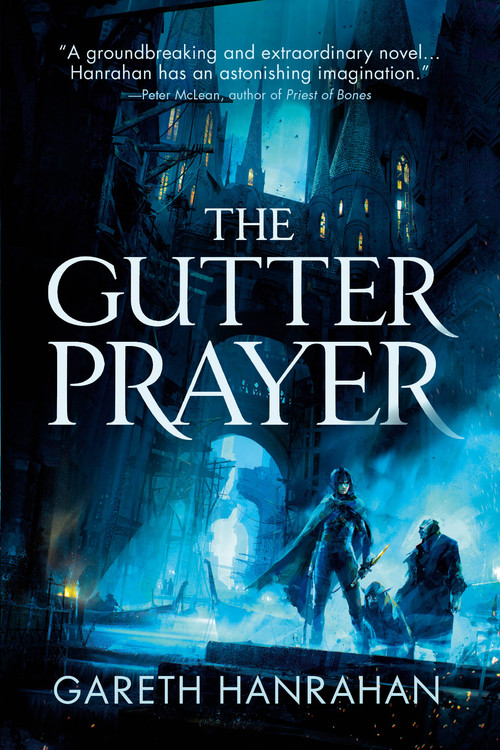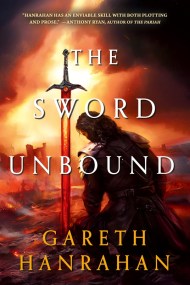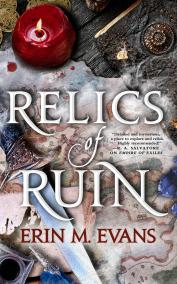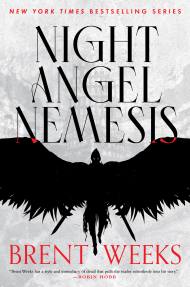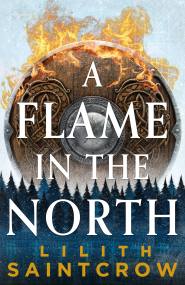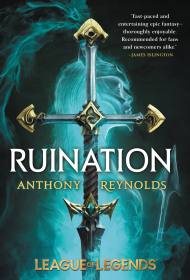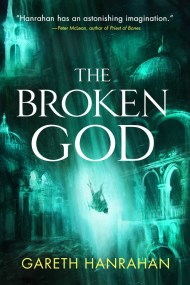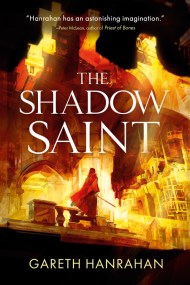Promotion
Use code MOM24 for 20% off site wide + free shipping over $45
The Gutter Prayer
Contributors
Formats and Prices
Price
$19.99Price
$25.99 CADFormat
Format:
- Trade Paperback $19.99 $25.99 CAD
- ebook $4.99 $6.99 CAD
- Audiobook Download (Unabridged)
This item is a preorder. Your payment method will be charged immediately, and the product is expected to ship on or around January 22, 2019. This date is subject to change due to shipping delays beyond our control.
Also available from:
A group of three young thieves are pulled into a centuries old magical war between ancient beings, mages, and humanity in this wildly original debut epic fantasy.
Enter a city of saints and thieves . . .
The city of Guerdon stands eternal. A refuge from the war that rages beyond its borders. But in the ancient tunnels deep beneath its streets, a malevolent power has begun to stir.
The fate of the city rests in the hands of three thieves. They alone stand against the coming darkness. As conspiracies unfold and secrets are revealed, their friendship will be tested to the limit. If they fail, all will be lost, and the streets of Guerdon will run with blood.
Enter a city of saints and thieves . . .
The city of Guerdon stands eternal. A refuge from the war that rages beyond its borders. But in the ancient tunnels deep beneath its streets, a malevolent power has begun to stir.
The fate of the city rests in the hands of three thieves. They alone stand against the coming darkness. As conspiracies unfold and secrets are revealed, their friendship will be tested to the limit. If they fail, all will be lost, and the streets of Guerdon will run with blood.
“A groundbreaking and extraordinary novel . . . Hanrahan has an astonishing imagination” (Peter McLean).
The Gutter Prayer is an epic tale of sorcerers and thieves, treachery and revenge, from a remarkable new voice in fantasy.
The Gutter Prayer is an epic tale of sorcerers and thieves, treachery and revenge, from a remarkable new voice in fantasy.
Genre:
-
"The Gutter Prayer is captivating and complex. Guerdon is a city that seethes with history, horror, and hidden secrets, and Hanrahan's assured style is reminiscent of China Mievelle in the best way possible."Nicholas Eames, author of Kings of the Wyld
-
"A gripping tale that meshes beautifully with its fascinating, darkly inventive setting."James Islington, author of The Shadow of What Was Lost
-
"Employing an enviable skill with both plotting and prose, Gareth Hanrahan has in The Gutter Prayer woven an intricate and finely crafted web of compelling characters navigating a city rich in dark and original wonders. I await the sequel with the keenest anticipation."Anthony Ryan, author of Blood Song
-
"Beautifully written. Gripping. Guerdon is the city of my dreams."Anna Smith Spark, author of The Court of Broken Knives
-
"Laced with the blackest of humor and packed with magic and mayhem, this is fantasy turned up to 11."Anna Stephens, author of Godblind
-
"A groundbreaking and extraordinary novel . . .Hanrahan has an astonishing imagination."Peter McLean, author of Priest of Bones
-
"This is genre-defying fantasy at its very best. An absolutely stunning debut. Insanely inventive and deeply twisted. I loved it! Highly recommended."Michael R. Fletcher, author of Beyond Redemption
-
"With living candles, ancient ghouls, broken gods, and more, The Gutter Prayer brims with cool and often twisted ideas."Peter Newman, author of The Vagrant
-
"Hanrahan brings the sights, sounds, and smells of Guerdon to life with crisp, lyrical prose that moves swiftly between thrilling action sequences and imaginative worldbuilding."Publishers Weekly
-
"A wonderfully bizarre vision, The Gutter Prayer reads like a collaboration between Hunter S. Thompson and H.P. Lovecraft."The Guardian
-
"Hanrahan brings his city to life in lyrical prose, even as the plot leaps from action sequence to breathless chase and back again."B&N Sci-Fi & Fantasy Blog
-
"Fans of dark fantasies like Brandon Sanderson's Elantris and Robert Jackson Bennett's City of Stairs will feel right at home in Guerdon's twisting cityscape. An inventive debut."Booklist
- On Sale
- Jan 22, 2019
- Page Count
- 560 pages
- Publisher
- Orbit
- ISBN-13
- 9780316525312
Newsletter Signup
By clicking ‘Sign Up,’ I acknowledge that I have read and agree to Hachette Book Group’s Privacy Policy and Terms of Use
